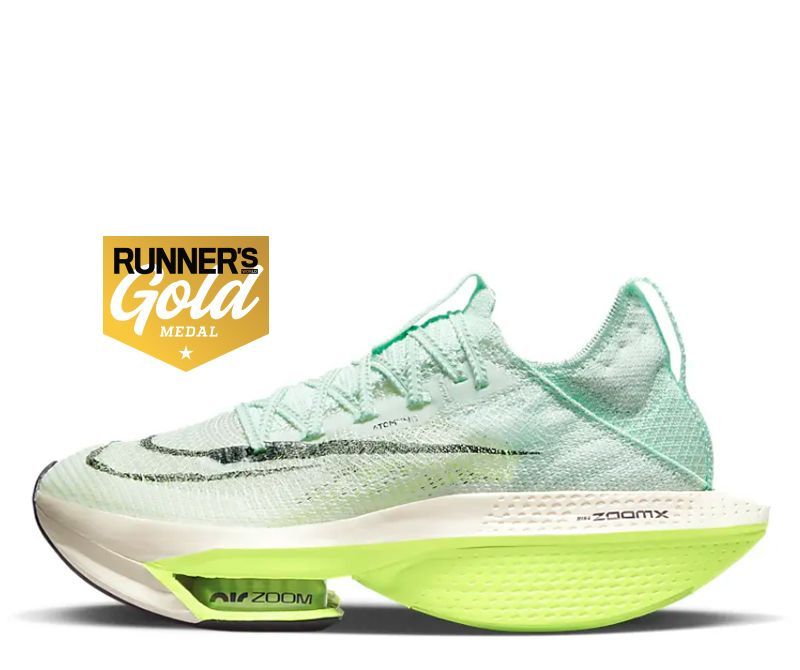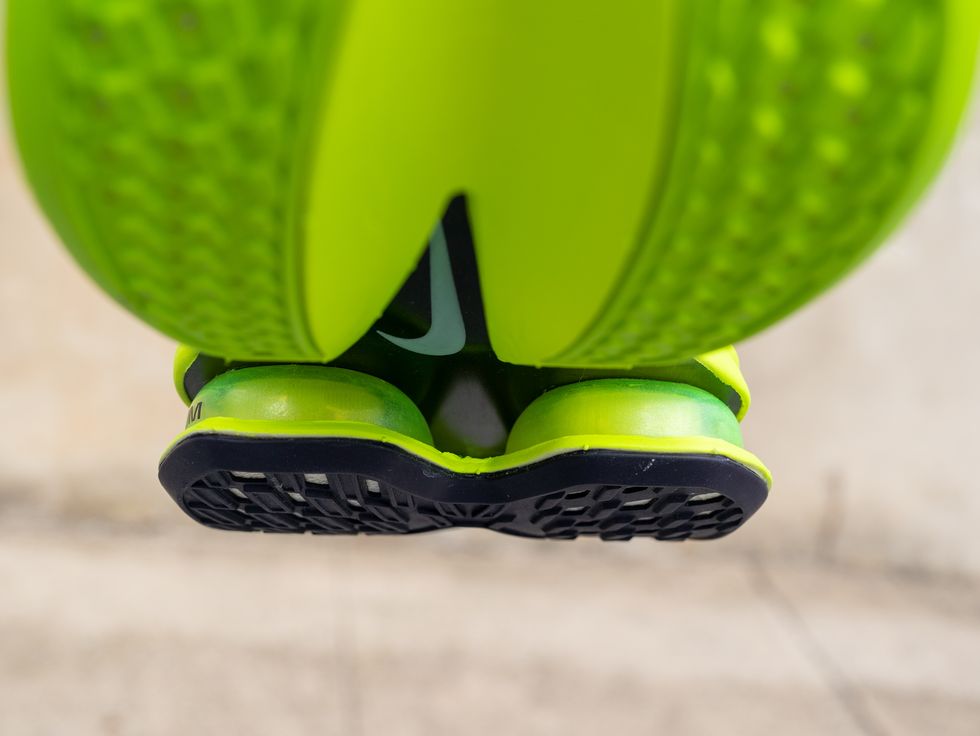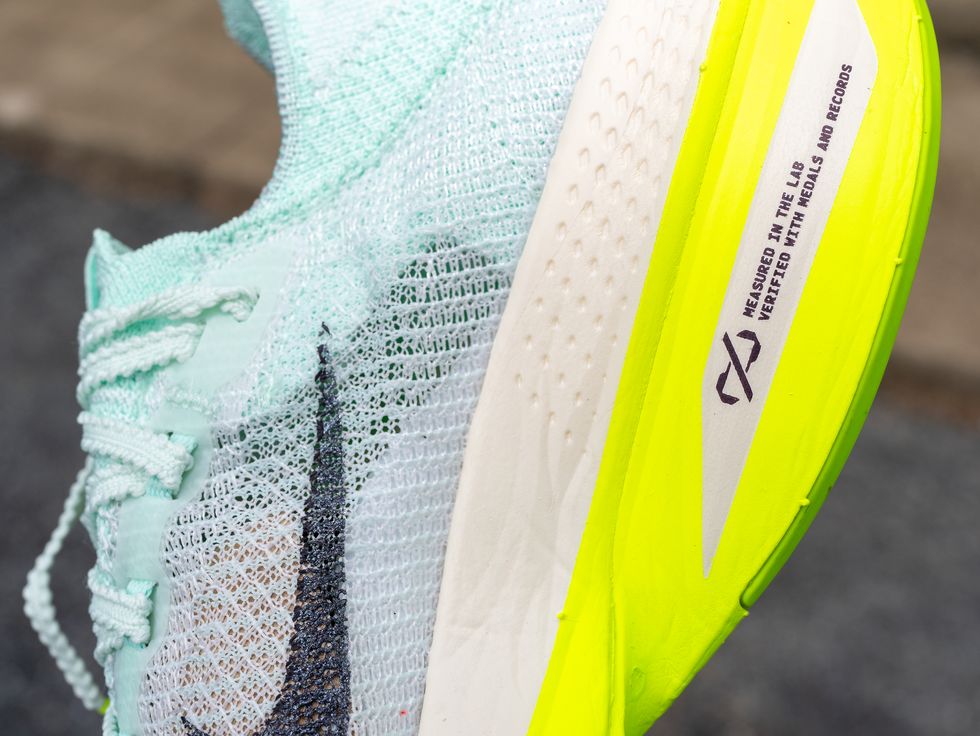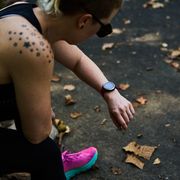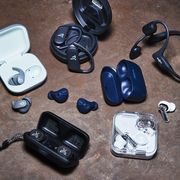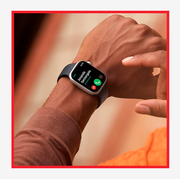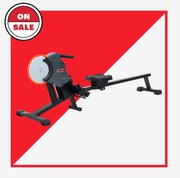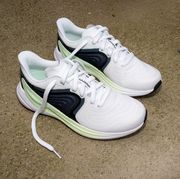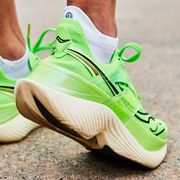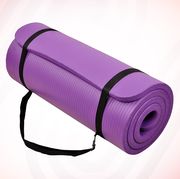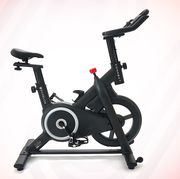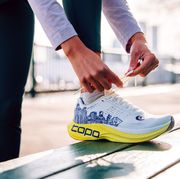The RW Takeaway: Nike swapped forefoot rubber for ZoomX foam to make the transition from heel to toes smoother—and quieter.
- More ZoomX foam under the forefoot
- Revisions to the AtomKnit upper improve fit
- It’s still exceptionally light and fast for such a big shoe
Price: $275
Type: Road Racing
Weight: 8.4 oz (M), 6.1 oz (W)
Drop: 8 mm
Buy Men’s Buy Women’s More Images
More From Runner's World

Did the only shoe to ever complete a marathon in under two hours really need an overhaul? Well, sure, why not? Just like cars and trucks, we get a new shoe every year whether we want it or not.
For the refresh of the Alphafly, Nike focused on a few key areas—energy return, long-run cushioning, and keeping weight as low as possible. I’d argue that a fourth criterion was to make the shoe quieter—the first version of this shoe is as loud as a horse galloping—but, Nike achieved that by also making the shoe transition a little better to toe-off.
The most visible change to note from the first Alphafly is that Nike added a thin layer of ZoomX foam directly under the forefoot Air units. It also changed the outsole material, using a more durable but thinner rubber. That change makes the shoe more compliant when the sole under forefoot hits the ground. It improves energy return, as well—ZoomX is obviously far bouncier than rubber. And, yes, we’ve found that it makes the shoe considerably quieter, though you’re still going to have the loudest footfalls of anybody in your race.
The back half of the chassis has been reworked, too, greatly improving stability. Nike made the midsole a little bit wider and wrapped the foam up higher so you sit down into it, kind of like bucket seats in a sports car. The challenge with the new breed of thick-soled shoes is that they’re a bit tippy, especially when you’re going around a corner. But, now that your heel sinks into the foam better, you’ll have more confidence rounding turns. This tweak has a marginal impact on the overall thickness and cushioning in the heel, and the shoe still meets World Athletics guidelines for sole thickness—it’s just under the 40mm limit.
The upper now uses “AtomKnit 2.0.” This newer fabric is more engineered compared to the one-piece upper on the original. Nike bolstered the sides of the forefoot but left the top of the toebox open. It also gave the tongue a little padding for comfort and, for the first time, added cushioned pods into the Flyknit at the heel. Those changes all make the shoe feel better on foot, but getting into the shoe remains a real struggle. Thankfully there are massive pull tabs, though I still feel like I’m about to dislocate my shoulder when yanking each shoe on.
TESTER’S TAKE
Alex P. | Age 29
Marathon PR: 2:22:33 | Weekly Mileage: 75 | Footstrike: Midfoot
“This is one of the best running shoes I have ever tested! I loved this shoe. I’ve been a big fan of the Nike carbon-fiber plated shoes since the original Vaporfly 4%. Each iteration of the shoe has outdone the previous. The paces I ran in this shoe went from marathon/tempo pace (5:10-5:20 per mile) down to about 10K pace (4:50 per mile).
The two key workouts I used this shoe for: a tempo run and a 3-mile, 2-mile, 1-mile interval workout with 2 minutes rest. The tempo run went great. I was able to lock in around 5:15 pace and hold consistently. Late in tempo runs, when it starts to get tough and form starts to break down, the Alphafly keeps you moving forward. The 3-mile, 2-mile, 1-mile interval, again, went very well. The 3-mile was 14:59, the 2-mile was in 9:47, and 1-mile in 4:53. The shoe felt so good, responsive, and supportive. When getting down to 4:50 pace, I felt that I was getting close to the max speed in these. With that being said, in my current training block I haven’t done any speedwork, so I feel with more focused workouts this shoe can hold its own.
The greatest thing about the shoe is the recovery following a hard effort. Your body doesn’t feel at all beat-up and you are ready to get back to training.
The fit is true to size. The cushion in the heel collar is improved from the previous version. It’s slightly softer and I felt like it was hugging my heel better.”
Jeff is Runner-in-Chief for Runner's World, guiding the brand's shoes and gear coverage. A true shoe dog, he's spent more than a decade testing and reviewing shoes. In 2017, he ran in 285 different pairs of shoes, including a streak of 257 days wearing a different model.

